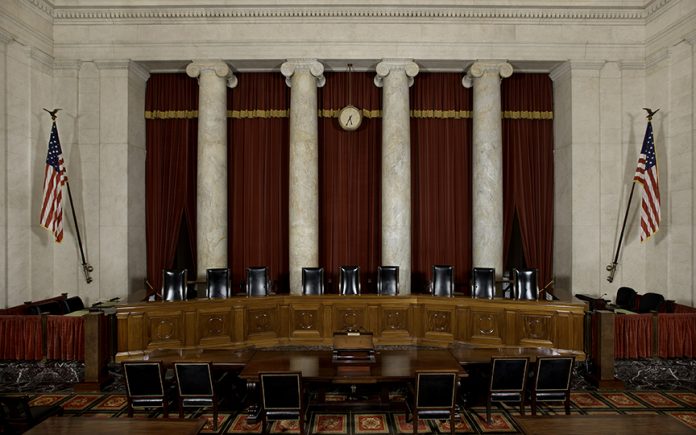The Episcopal Church and its Diocese of Fort Worth filed a Petition for a writ of certiorari with the U.S. Supreme Court, asking it to overturn the unanimous May decision by the Texas Supreme Court that found in favor of the ACNA diocese.
On 22 May 2020 the ACNA Diocese of Fort Worth reported the Texas Supreme Court had issued a unanimous decision in the 11-year old dispute between the diocese and the national Episcopal Church. The state supreme court accepted the diocese’s arguments in its Petition for Review of the 2018 decision by the Texas Second Court of Appeals and “granted all the relief requested” it reported.
The Texas Court held neutral principles of law governed the proceedings. Writing in part the Texas Court held:
“Applying neutral principles to the undisputed facts, we hold that 1) resolution of this property dispute does not require consideration of an ecclesiastical question, 2) under the governing documents, the withdrawing faction is the Episcopal Diocese of Fort Worth, and 3) the trial court properly granted summary judgment in the withdrawing faction’s favor. We therefore reverse the court of appeals’ contrary judgment.
In its opinion, the Court found that the Diocese had not violated any Episcopal Church charter in withdrawing from association to TEC in 2008, and that the actions of the Diocese and Corporation were consistent with our own charters and with the state’s trust and unincorporated association statutes, and it upheld the dismissal of the Dennis Canon as determinative in Texas church property disputes.”
On 19 October 2020 the national Episcopal Church and its Fort Worth diocese filed its petition for review with the US Supreme Court arguing the First Amendment to the US Constitution’s separation of church and state dictated the state must follow the church’s lead on internal church matters.
The questions presented to the Supreme Court were:
“The First Amendment limits civil courts’ authority to resolve disputes within a church. For more than a century, this Court respected those limits by mandating deference to the appropriate ecclesiastical body’s resolution of church-property disputes. See Watson v. Jones, 80 U.S. (13 Wall.) 679 (1871). The Court changed course in Jones v. Wolf, 443 U.S. 595 (1979). There, by a 5-4 vote, the Court held that states may either defer or apply “neutral principles of law.” Id. at 602. The Court identified two safeguards, however, that it said would “protect the free exercise rights” of churches and their congregants: first, a church may “ensure” it retains control of property by amending its governing documents to “recite an express trust”; and, second, courts “must defer” to religious bodies on questions of “doctrine or polity.” Id. at 602, 604-606. State high courts are now split over whether and how to apply those safeguards. The questions presented are:”
“1. Whether the First Amendment requires courts to enforce express trusts in church governing documents (as some jurisdictions hold, in line with Jones’s first safeguard), or whether state law may render such trusts unenforceable (as others hold).”
“2. Whether the First Amendment requires courts to defer to churches on questions of polity (as some jurisdictions hold, in line with Jones’s second safeguard), or whether courts may apply state law to determine the structure of a church (as others hold).”
“3. Whether the neutral-principles approach may constitutionally be applied—either prospectively or retroactively—to resolve church-property disputes.”
On 20 Nov 2020 the US Supreme Court granted the diocese’s motion to extend the time for filing a reply brief to 23 December 2020.
The Texas Supreme Court decision can be found here.
TEC’s petition to the US Supreme Court can be found here.










